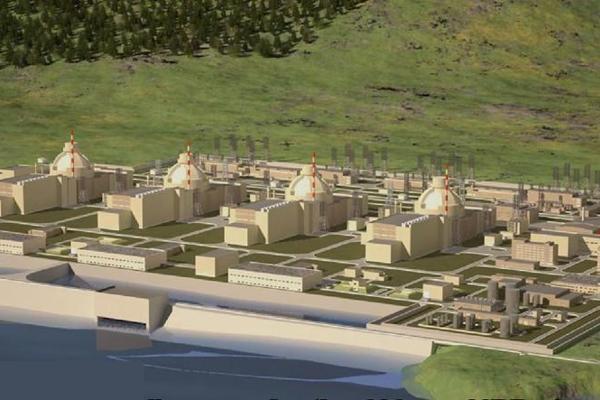PACE voices concern over Turkey’s Akkuyu nuclear plan
STRASBOURG


Akkuyu Nuclear Plant in southern Turkey is scheduled to be in operation in 2023
The Parliamentary Assembly of the Council of Europe (PACE) on Oct. 11 expressed “deep concern” on the construction of the Akkuyu nuclear power plant in an earthquake-prone region of Turkey only 85 kilometers from the border with Cyprus.
At a session on Oct. 11, PACE discussed a series of steps governments should take to improve the safety of nuclear power stations in Europe—and minimize the risk of accidents or terror attacks.
In a resolution it adopted, the assembly expressed its deep concern regarding the construction of the nuclear power plant in an earthquake-prone region of Turkey. It therefore asked the Turkish government to join the Espoo Convention and to take into account all concerns, as well as those expressed by its citizens, and asked it to consult with neighboring countries according to the International Convention on Nuclear Safety.
The Espoo Convention sets out the obligations of parties to assess the environmental impact of certain activities at an early stage of planning. It also lays down the general obligation of states to notify and consult each other on all major projects under consideration that are likely to have a significant adverse environmental impact across boundaries.
The Akkuyu nuclear plant, comprising four units and with a total capacity of 4,800 megawatts, has an operational date set for the first reactor by 2023.
The construction of the plant in the Mediterranean province of Mersin was kicked off by President Recep Tayyip Erdoğan and his Russian counterpart Vladimir Putin on April 3.
Turkey had also signed a protocol with the Japanese government for the construction of a nuclear power plant in the province of Sinop on the Black Sea coast.
The Turkish government will likely build the country’s third nuclear energy plant in Thrace, then Energy and Natural Resources Minister Berat Albayrak, who now serves as the Treasury and Finance Minister, announced in June this year.
